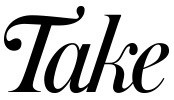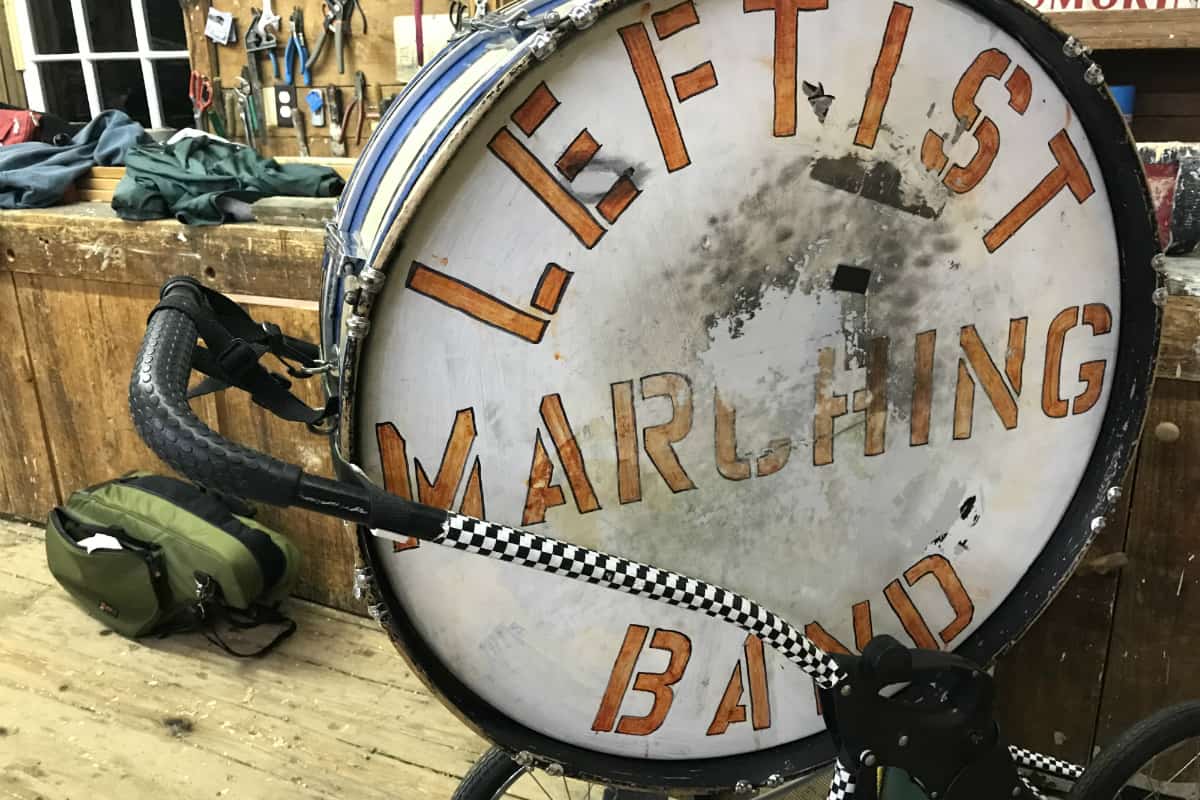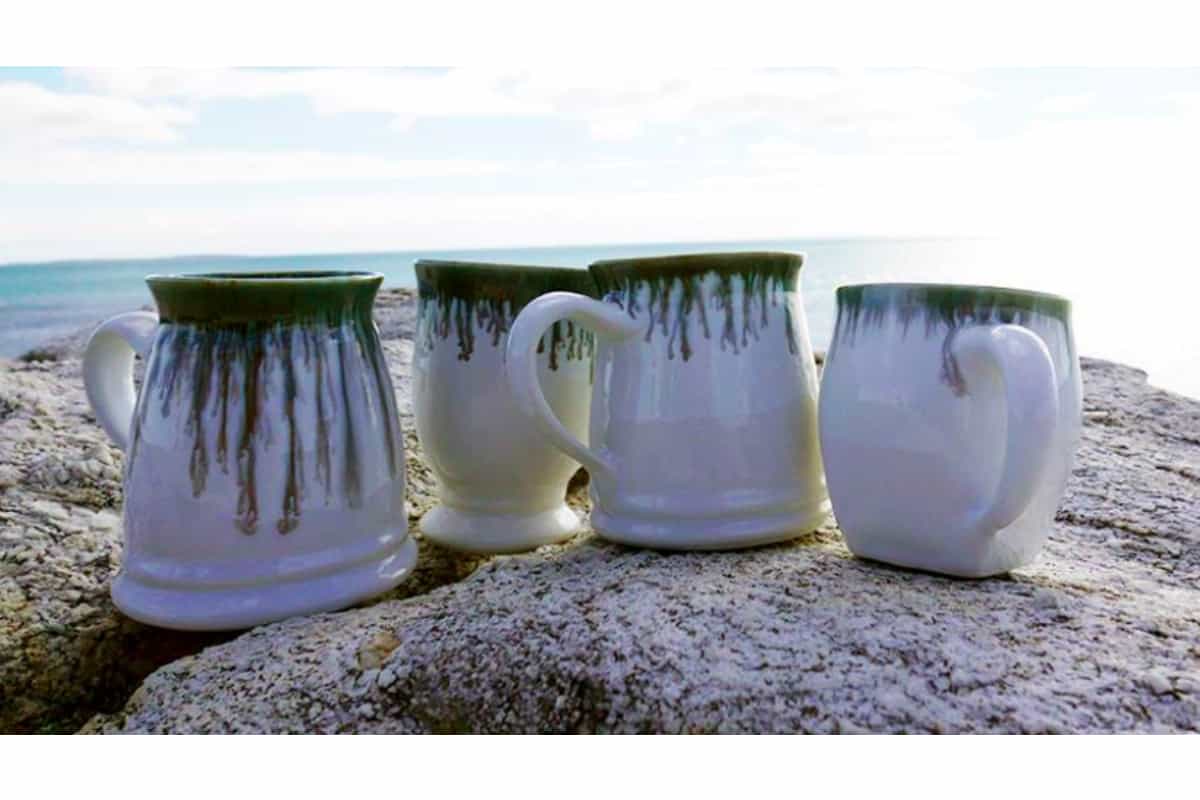Did you make one of the many brilliant signs seen at the Women’s March? A museum near you just might be asking for it.
On Saturday, January 21st, humans of all ages, colors, nationalities, and orientations marched in hordes to form the largest inaugural demonstration of disgust in American history. In DC and 500 cities across the United States, more than three million folks banned together to express myriad messages—and damn, did they bring some good signs. The creativity and cleverness displayed across the board was almost as inspiring as the messages themselves; that’s why art museums and organizations across the country are collecting the signs to put on display. Maine Historical Society is collecting them, too, but with a different goal in mind: The folks at MHS have recognized the reverberant potential of this event, and deemed it worth archiving for both its cultural and historical value.
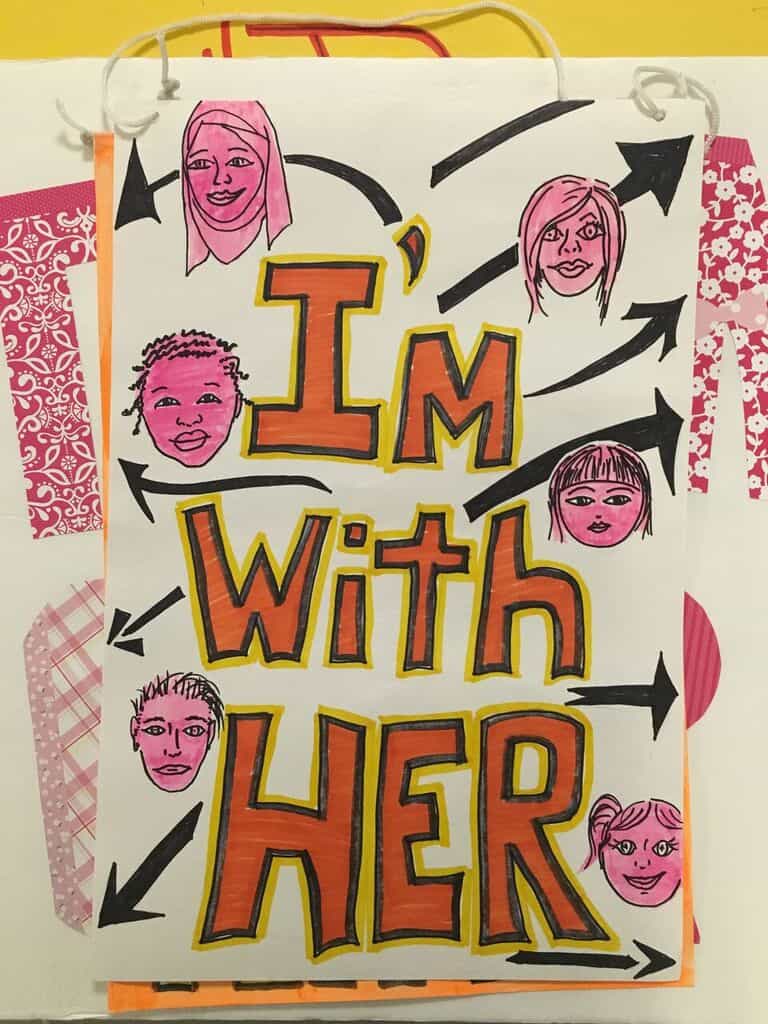
Photo courtesy of Maine Historical Society
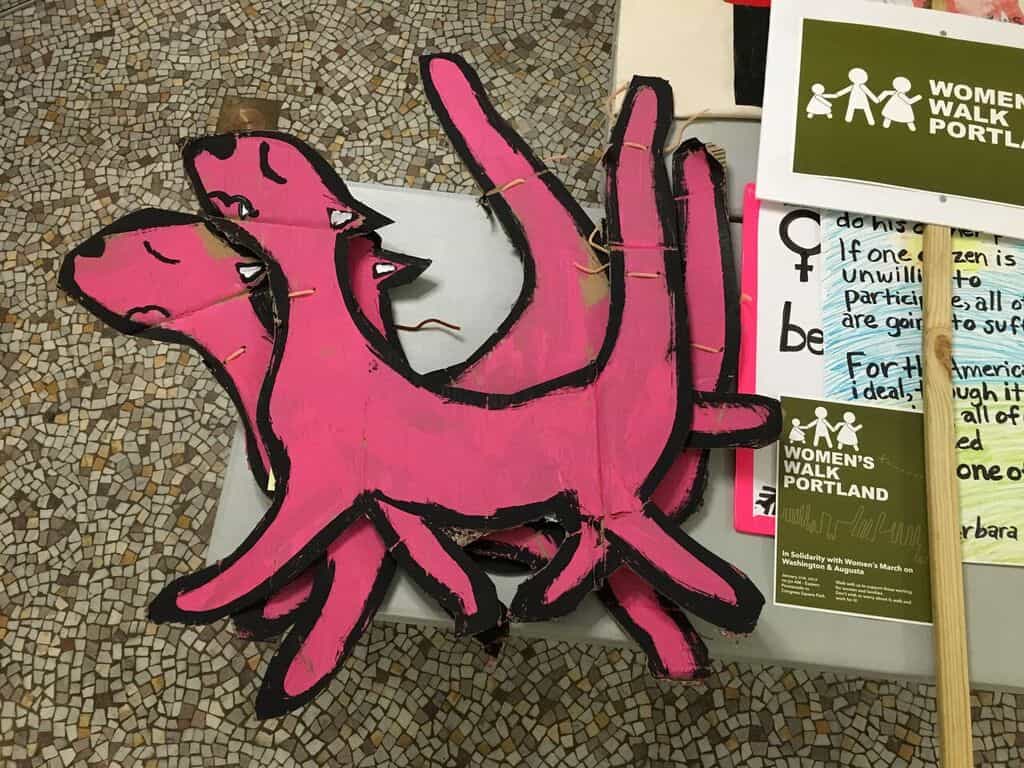
Photo courtesy of Maine Historical Society
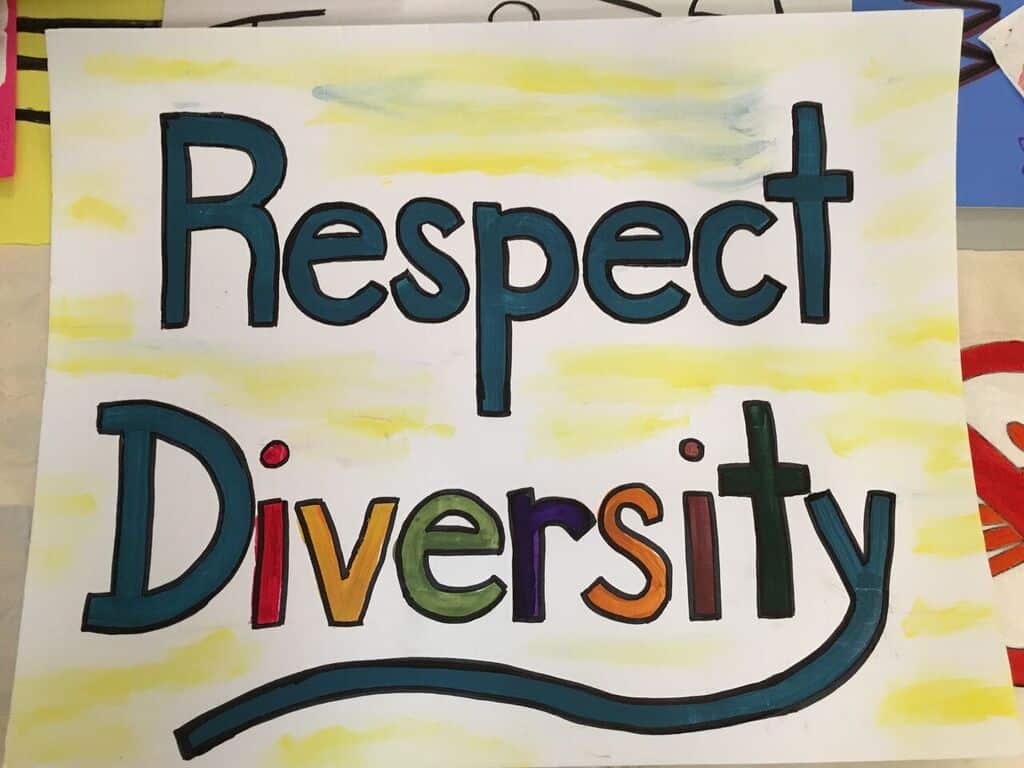
Photo courtesy of Maine Historical Society
The idea to collect leftover signs and protest material was a no-brainer for Kate McBrien, chief curator at Maine Historical Society, and Tilly Laskey, the center’s outreach coordinator. “Protests like this are obviously going to play a really important role in the next few years,” says McBrien. “They’ve been building and I can only see that growing over the next few years. So we wanted to be able to collect all the protest material we could find and document that grassroots movement, with the idea that it may play a big role in shaping future politics.
“As a historical society,” she continues, “we tend to look more at the human history of the state of Maine, and the political history of the state and how it relates to the nation. Protest is a huge part of that human history, and how Maine citizens and American citizens have made their voices heard within the political process. We wanted to document that citizen voice in the political process; that’s our goal in collecting them.”

Photo courtesy of Maine Historical Society
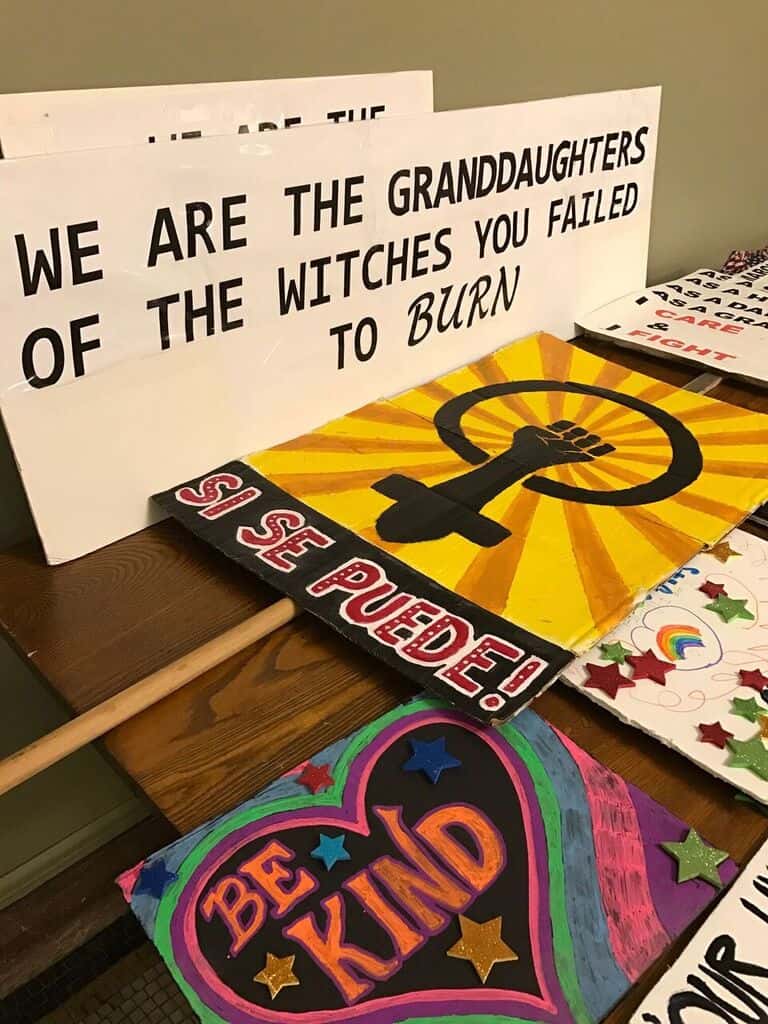
Photo courtesy of Maine Historical Society
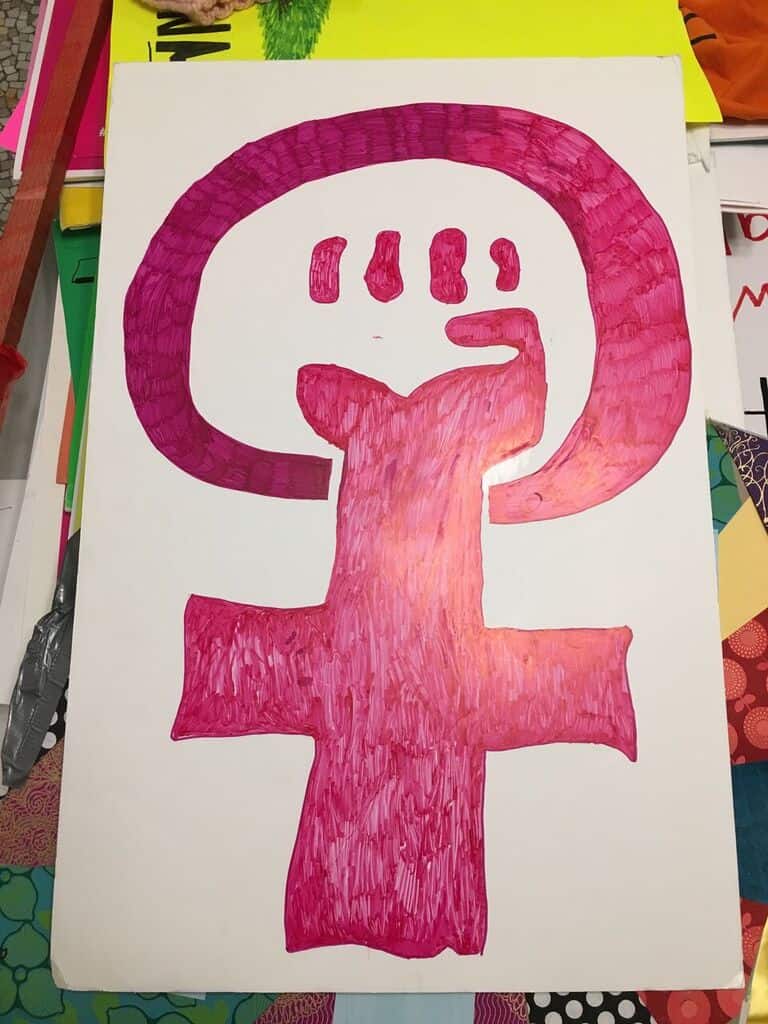
Photo courtesy of Maine Historical Society
At the Portland and Augusta marches, Maine citizens brought up a number of statewide concerns, one being water rights. “One of the speakers at the Augusta March was a woman of Wabanaki descent.” says McBrien. “She spoke about water rights and water access in reference to the Dakota pipeline, but she was also talking about water rights in Maine and how the Penobscots have had a long legal battle with the state of Maine for rights to the Penobscot River, which they believe is their ancestral home.”
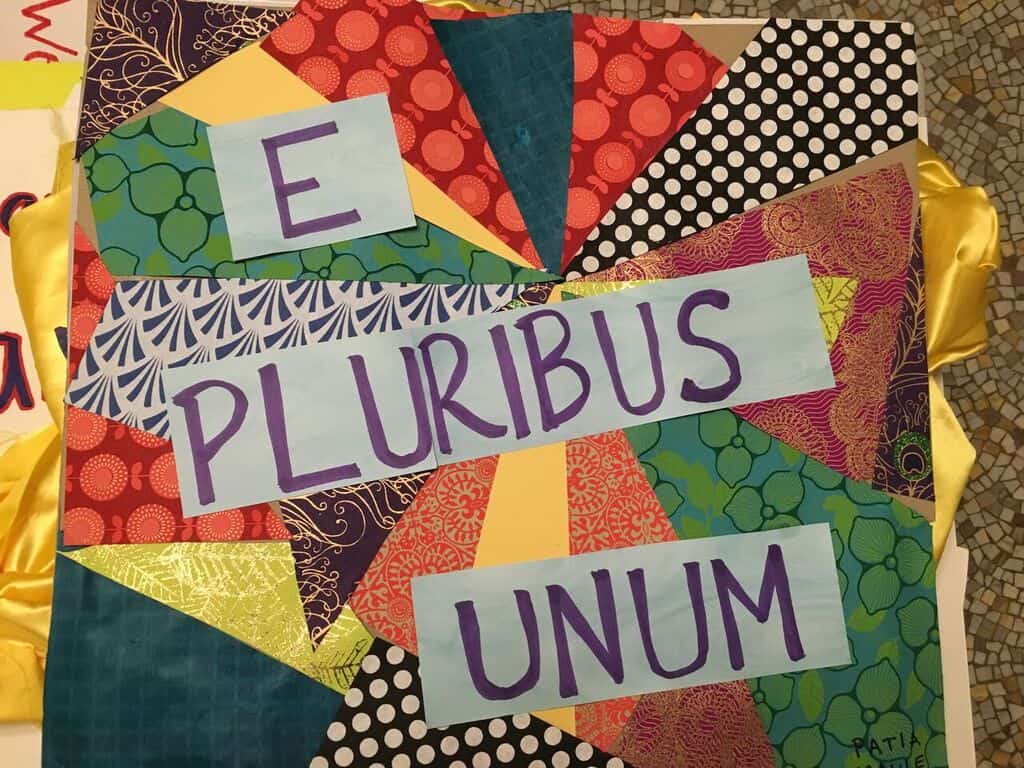
Photo courtesy of Maine Historical Society
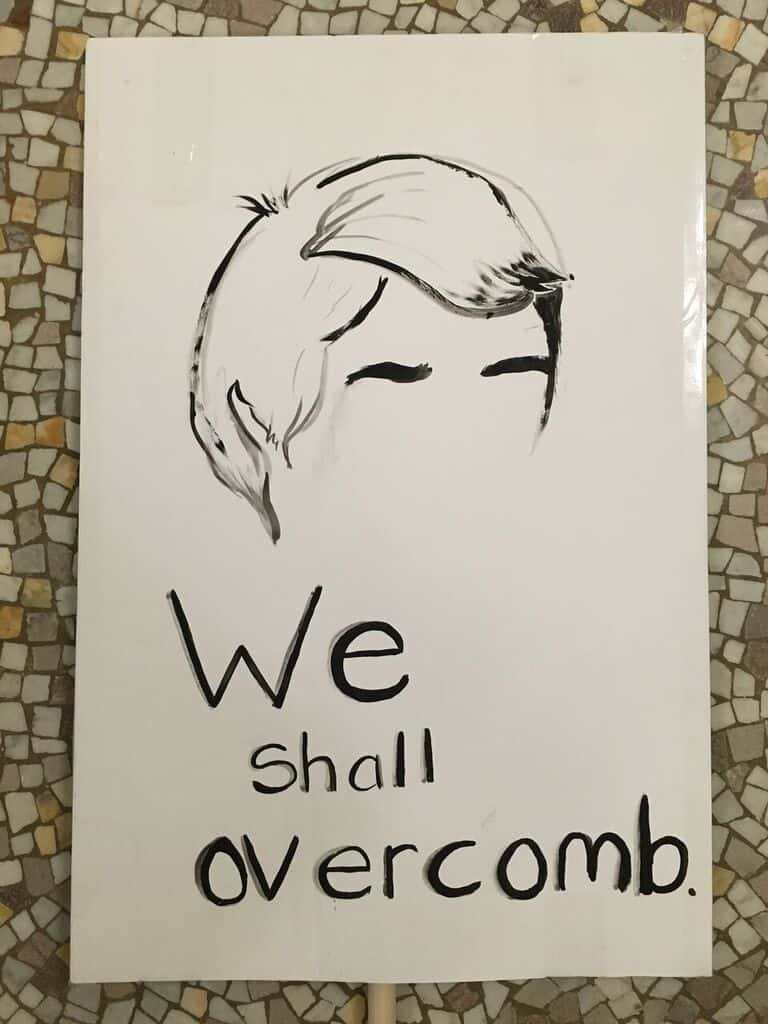
Photo courtesy of Maine Historical Society
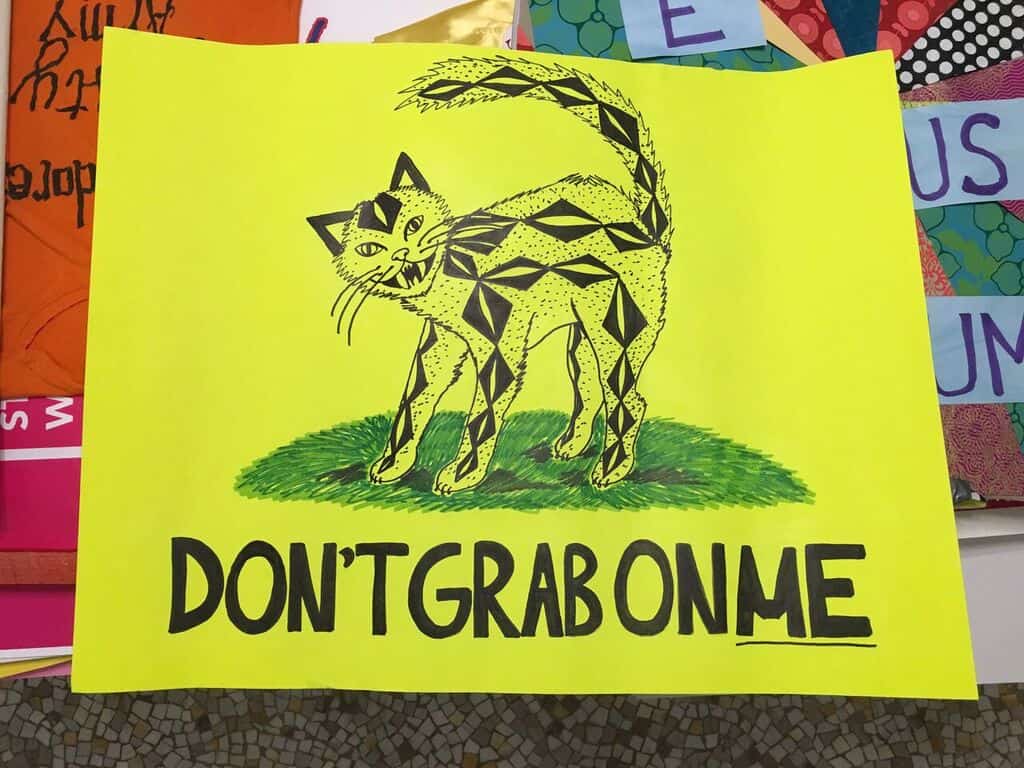
Photo courtesy of Maine Historical Society
“I don’t know if the Women’s March will become a movement,” McBrien speculates, “and that’s actually the wonderful thing about history: it informs us a bit, it helps us to expect what might happen in the future, but it’s still our future to create. So we’ll just have to kind of wait and see.”
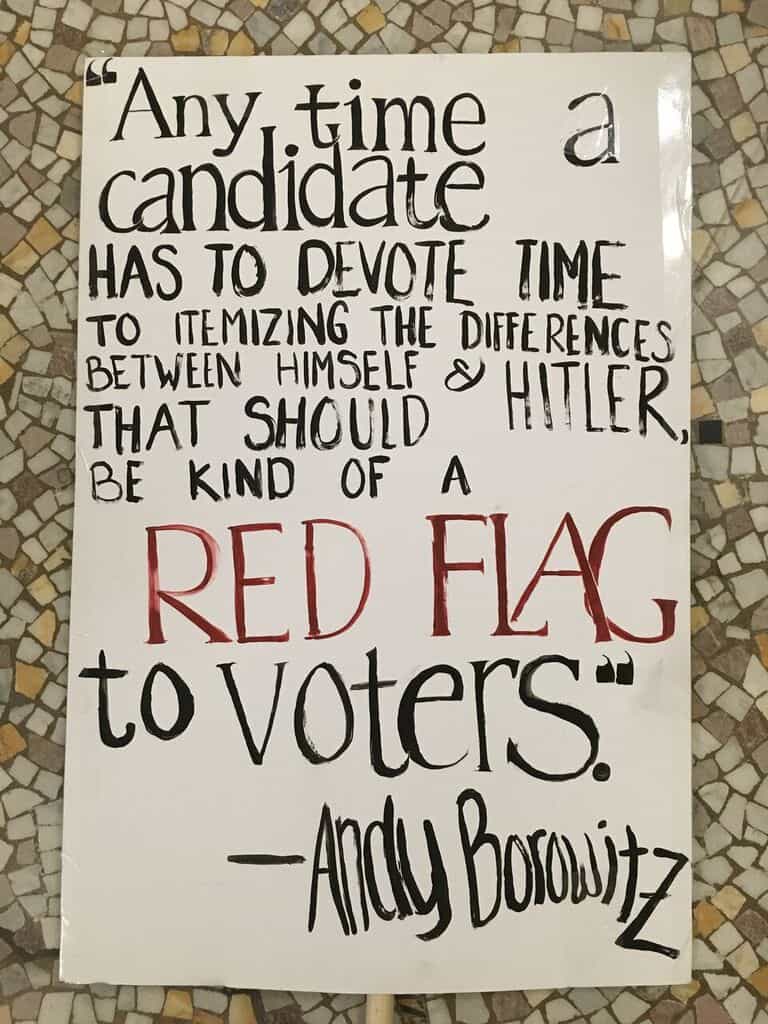
Photo courtesy of Maine Historical Society

Photo courtesy of Maine Historical Society
The Women’s March signs are evidence that those who participated were the artists, the creatives, the lovers, the empathetic, and the passionate—a community that has faith in the power of unity and resistance. Come hell or high water (or tiny orange hands), these people are ready to make a decidedly yuge impact, and I’m mean absolutely yuge, you wouldn’t even believe how yuge. It’s incredible.
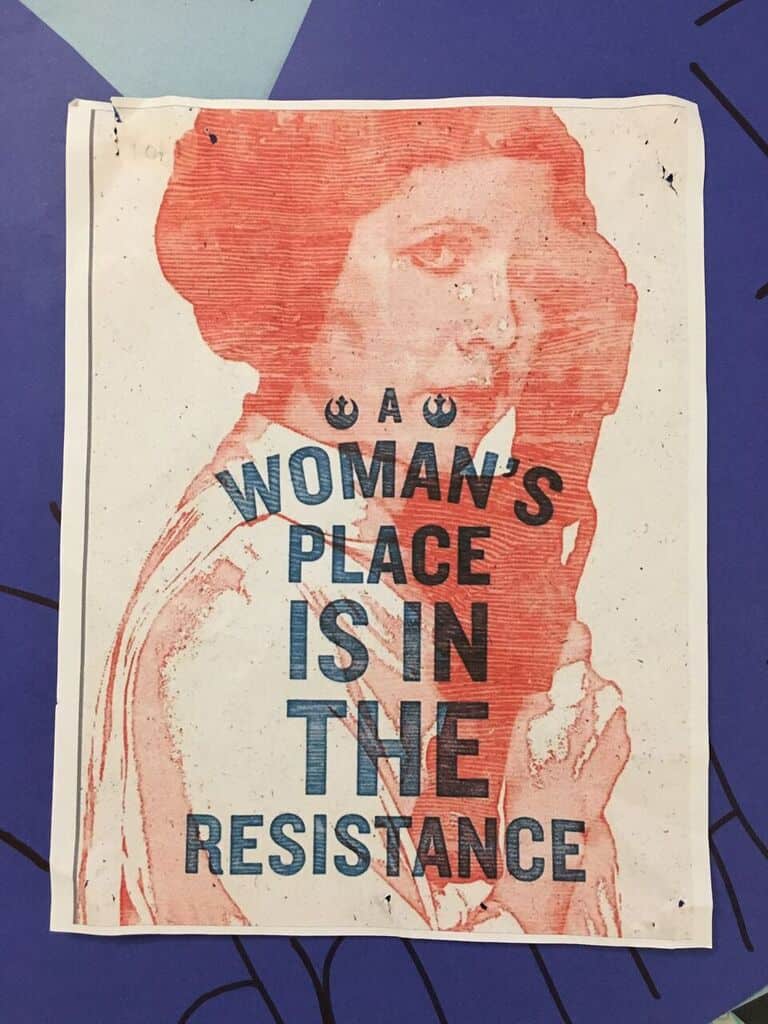
Photo courtesy of Maine Historical Society

Photo courtesy of Maine Historical Society
Maine Historical Society will continue to collect signs from the Women’s March, as well as from marches to come.
